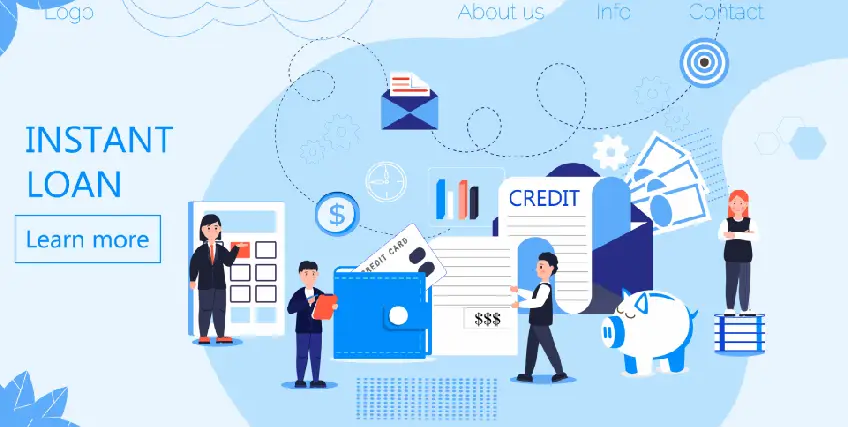The Art of Negotiating a Business Loan to Purchase an Existing Business: A Masterclass
April 17, 2025 | Last Updated on: April 17, 2025

There are two ways to become a small business owner. The first is to start a new business from scratch. This is time consuming, requires a lot of hard work, and often leads to failure. The second is to purchase an existing business that already has customers, employees, and successful systems in place. This is often a more streamlined approach, but it takes significant capital to acquire an existing business. Hence, the need for financing.
Whether you’re an aspiring entrepreneur or an experienced investor, getting funding to buy an existing business involves more than having a good credit score. This article covers tips for getting funding to purchase an existing business, negotiation strategies, small business financing options, and how to confidently negotiate and close a successful deal while navigating factors like collateral, interest rates, and repayment terms.
How to Use Small Business Loans to Purchase an Existing Business
Finding the right lender to meet your needs is essential when seeking financing to purchase an existing business. Each business acquisition has unique needs and considerations and there isn’t a single type of loan that is right for every situation.
Types of Business Loans
There are a few options when it comes to using a business loan to purchase an existing business. Here’s a look at each.
Small Business Administration (SBA) Loans
SBA financing is a great option when seeking a business loan to purchase an existing business. SBA loans, which are implemented by approved SBA lenders, often have excellent repayment terms and low interest rates.
However, the loan application process is more complex than other types of business financing due to comprehensive paperwork and strict eligibility requirements, so these may not be the best option for every situation.
The primary SBA loan program is 7(a) loans. These SBA loans can offer up to $5 million, which can be used towards:
- Business acquisitions
- Refinancing current business debt
- Equipment purchases
- Working capital
- Short-term and long-term loans
- Purchasing furniture and supplies
- Any combination of the above
Traditional Bank Loans
Credit union and bank loans have historically been a popular option for getting a business loan to purchase an existing business. However, some borrowers have moved away from bank loans in recent years because of the bottlenecks associated with traditional lending.
Securing a business loan to purchase an existing business through traditional banking channels typically requires strong collateral and a good credit score.
A bank usually looks for a minimum of two years in business and sometimes even a personal guarantee before considering any business loan. As with an SBA loan, bank loans also have a lot of paperwork, and it can take a while from the time you apply for the loan to when you receive funds.
You can use bank loan funds for just about any business purchase, similar to SBA loans.
A bank generally won’t issue a small business loan amount over $1 million, although the average loan amount for small banks is much lower than that. Repayment time can vary widely, depending on what the loan funds are used for, but typically runs from 5 to 15 years.
Seller Financing
Occasionally, the current owner of the business you want to acquire is willing to finance the deal. This is known as seller financing, and it can be a useful way to purchase an existing business.
Sellers may require a larger down payment than small business lenders. Fifty to 60% of the purchase price is not unheard of for a cash down payment requirement, with the remaining financed through the seller. However, you may also be able to convince the seller to stay on for a year or two in order to smooth the transition, or negotiate a sale in which you pay a percentage of profits until the purchase price plus interest has been repaid.
Sellers may require a personal guarantee and collateral agreement in case of a loan default. The advantage of seller financing is that the deal can be closed more quickly. A major disadvantage is that if all goes south, you can lose your hefty down payment and all assets pledged.
Investors
Investors may also provide the necessary funds to purchase an existing business. Investor funding is beneficial if the company being acquired has huge growth potential.
The downside is that the investor or investors usually get equity in the business in exchange for funding.
This can impact your bottom line as it usually means less cash flow for the business and less profit for you as the new business owner. But if the potential is there and there’s no other way to get financing, it’s worth considering.
Alternative Financing
Alternative financing is another option for entrepreneurs looking for a business loan to purchase an existing business. Online lenders provide alternative financing, which may offer some advantages over other small business loan options.
For example, alternative lenders often approve borrowers who are unable to get other types of financing, as they have a more robust underwriting process. As a result, credit score requirements may be a little more relaxed.
Alternative lenders can also be more lenient in their requirements for time in business. Moreover, many small business owners turn to alternative financing for a business loan to purchase an existing business because of quicker approval processes.
Alternative financing can meet many needs, including,
- Business acquisitions
- Business expansions or renovations
- Commercial real estate purchases
- Working capital
- Refinancing business loans
- Inventory and equipment purchases
Financing terms vary widely with alternative lending marketplaces and depend on creditworthiness, time in business, annual revenue, and the type of financing. However, if unsure one must speak with a financial professional before making any decisions.
Preparing for the Loan Negotiation
Before negotiating financing to purchase an existing business, it’s a good idea to prepare by doing the following.
1. Assess your creditworthiness and financial position.
Building excellent credit is one key to unlocking the funding you need at the best possible terms when seeking a business loan to purchase an existing business. If you have excellent credit, you’re in a more favorable negotiation position. If you’re not, consider working on your creditworthiness and financial standing to have more negotiating power.
2. Prepare personal and business financial statements.
Lenders will want to see that you have your financial house in order. Most will require tax returns, bank statements, a balance sheet, a profit and loss statement, and a list of any business and personal assets you have.
3. Develop a sound business plan.
A sound business plan outlining how you will use the business loan to purchase an existing business is crucial for convincing lenders to approve your financing. A business plan should convey your business goals and how you intend to achieve them. It’s also a good idea to break down how you intend to use the loan funds. Include documentation showing you’ll have the cash flow to cover your business financing payments and ongoing business expenses. When you submit your business plan, include the financial statements outlined in the previous tip.
4. Perform your due diligence.
Before the formal purchase agreement, the buyer and seller sign a letter of intent. This marks the beginning of the due diligence phase of the transaction. This allows the buyer to investigate the business to evaluate its benefits and disadvantages. Through due diligence, you can see if the asking price is within the scope of the business’s valuation. If you discover red flags that weren’t initially apparent or require financial output from you, you can ask the seller to lower the purchase price. You also learn more about the business’s operations, its customer base, liabilities, assets, and business documents. All of this can be used to negotiate a fairer purchase price or to abandon the transaction in favor of a more sound one.
Negotiation Strategies to Win
Negotiating a business loan to purchase an existing business can sometimes make a significant difference to the overall financial success of the deal. It can throw a few extra thousand dollars your way, which is helpful when the business is new for you and you’re just starting out.
Here are a few negotiation tips to use when seeking a business acquisition loan.
1. Strengthen your negotiation position.
Lenders will lean heavily towards borrowers with stronger financial profiles. One key strategy in negotiating a business loan to purchase an existing business is to offer more collateral and a personal guarantee in exchange for better loan terms. For many entrepreneurs, this means digging into personal assets such as real estate, equipment, and vehicles to seal the deal.
2. Research lenders.
Start by researching lenders specializing in loans to purchase an existing business and understand their terms and requirements. It’s also wise to choose a lender that’s familiar with your industry. Learn about their loan requirements, typical interest rates, and repayment terms. Avoid any that will waste your time or prolong the loan process. When it comes to making business deals, time is money.
3. Secure multiple loan offers.
By securing multiple offers for a business loan to purchase an existing business, you can compare interest rates and terms to find the best deal. Lenders want to win your business if at all possible. Interest rates and fees can vary significantly from one to the other. There are also other costs of the loan including prepayment penalties and origination fees. Fixed versus variable interest rates are another thing to consider. Scrutinize everything to determine which offer costs less when all is said and done. Use any advantages one offers over another to negotiate with lenders you prefer.
4. Negotiate the most important loan provisions.
Over-negotiating can ultimately cost you time and money. Legal fees can get expensive in a business acquisition loan. The more talking points the lender has to send back to the legal team, the more expensive your loan will end up costing. Over-negotiating can also make you lose out on a deal altogether. Try to stick to basics when negotiating a business loan to purchase an existing business, such as offering more collateral for a lower interest rate.
5. Work with a loan specialist.
Working with a loan consultant who understands the intricacies of a business loan to purchase an existing business can help you secure favorable terms and avoid common pitfalls. A loan specialist or broker acts as a liaison between you and a lender. The best consultants will advise you throughout the process, from before you even find an existing business to acquire to getting your financials to the loan process and beyond.
FAQs
What are the basic criteria for getting a business loan to purchase an existing business?
Lenders look for creditworthiness, time in business, and minimum annual revenue. These vary from lender to lender, with banks requiring a credit score of 700 or more for the best terms, and the SBA accepting scores as low as 640. Meanwhile, alternative lenders typically have loan options for lower credit scores in the high 500s, ranging to 650 and above.
Is business credit needed to get a business loan to purchase an existing business?
It depends on the lender, but having established business credit scores with Dun & Bradstreet can strengthen your chances of approval. Dun & Bradstreet utilizes a PAYDEX scoring that ranges from 1 to 100. Lenders often prefer a PAYDEX score of 80 or higher.
Is it possible to get 100% financing for a business loan to purchase an existing business?
There are often stringent conditions to meet. Financing an existing business with 10% down is often more preferred by lenders.
What other types of business financing are available?
Some business owners get lines of credit, revenue-based financing, equipment financing, and even utilize business credit cards when acquiring a business or funding other business needs.
Can I get a business loan to purchase an existing business if I have bad credit?
If you have bad credit, it may still be possible to get business financing through an alternative lender, which typically has financing solutions for entrepreneurs with bad credit. Whether or not you can purchase an existing business with alternative loan funds will depend on other factors, such as collateral, down payment, and other criteria set forth by the lender.




